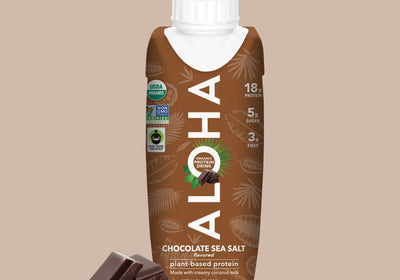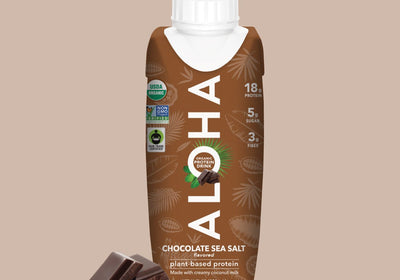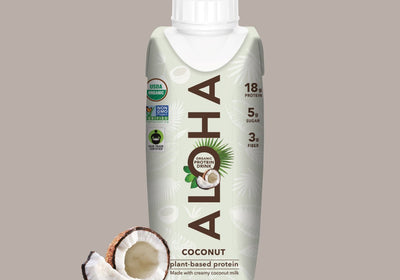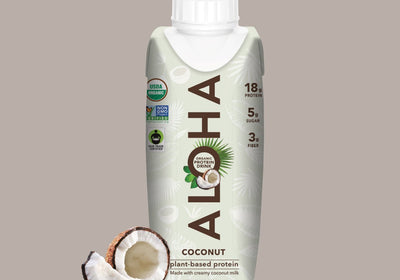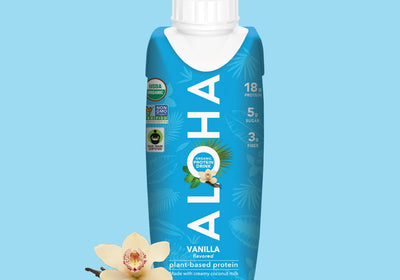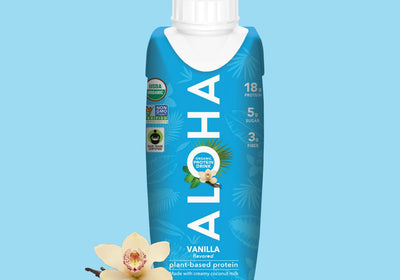Vegan protein shakes are made using a variety of plant-based ingredients that offer high protein content and essential nutrients. Here are some of the most common and beneficial ingredients found in these shakes:
- Pea Protein: One of the most popular plant-based proteins, pea protein is rich in essential amino acids, particularly arginine, which supports muscle recovery and heart health. It’s also easy to digest and hypoallergenic.
- Brown Rice Protein: Brown rice protein is hypoallergenic and easily digestible. Although it is slightly lower in lysine (an essential amino acid), it can be combined with other proteins, such as pea protein, to create a complete amino acid profile.
- Soy Protein: Soy is one of the few plant-based proteins considered a complete protein, meaning it provides all the essential amino acids. It’s highly effective in supporting muscle growth and repair but may be avoided by those with soy allergies.
- Chia Seeds: Rich in omega-3 fatty acids and fiber, chia seeds are often added to vegan protein shakes to boost nutrition. They also provide a small amount of plant-based protein.
- Pumpkin Seed Protein: Pumpkin seed protein is rich in magnesium, zinc, and healthy fats. It’s another complete protein, making it a great addition to vegan protein shakes for muscle repair and energy.
- Quinoa: Quinoa is a complete protein and a grain, offering a substantial amount of protein and fiber. It’s sometimes included in vegan protein powders to increase nutrient density.
These ingredients are often blended together in protein powders to offer a balanced nutrient profile, providing the essential components needed for muscle recovery, energy, and overall health.
Common Misconceptions About Vegan Protein Shakes
Vegan protein shakes have gained popularity, but they’re still surrounded by misconceptions that can discourage people from giving them a try. Whether it’s concerns about effectiveness, taste, or nutrient content, many of these myths are outdated or simply incorrect. By debunking these common misconceptions, it becomes clear that vegan protein shakes are not only a viable alternative to animal-based options but also offer unique benefits. Let’s address some of these myths and set the record straight.
Vegan Protein Shakes Are Incomplete Sources Of Protein
One of the most pervasive myths is that vegan protein shakes are incomplete sources of protein, meaning they lack the essential amino acids required for muscle growth and repair. While it’s true that some individual plant-based proteins, like rice or hemp, may not contain all nine essential amino acids in sufficient amounts, high-quality vegan protein shakes address this by combining multiple sources. For instance, pea protein, which is rich in essential amino acids, is often paired with rice protein to ensure a complete amino acid profile. These blends make vegan protein just as effective as animal-based proteins, such as whey, for supporting muscle development.
Vegan Protein Shakes Are Not As Effective For Muscle Building
Another common misconception is that plant-based protein shakes are inferior to animal-based ones, particularly for muscle building. This belief stems from the notion that only animal proteins, such as whey, can support muscle growth due to their high content of essential amino acids and branched-chain amino acids (BCAAs). However, research has shown that plant-based proteins like pea and soy are rich in BCAAs and can be just as effective for muscle repair and growth when consumed in adequate amounts. In fact, many athletes and bodybuilders have successfully transitioned to plant-based protein without compromising their performance.
Vegan Protein Shakes Don’t Taste Good
In the past, vegan protein powders were notorious for their gritty texture and earthy flavors. This led to the misconception that all vegan protein shakes taste unpleasant. However, advancements in product formulations have dramatically improved both the flavor and texture of vegan protein shakes. Today, many brands offer delicious flavors such as chocolate, vanilla, and berry, which blend smoothly into shakes, smoothies, or even baked goods. These modern formulations are designed to be palatable, allowing people to enjoy their protein shakes without sacrificing taste.
Vegan Protein Shakes Are Low In Nutrients
Some people believe that vegan protein shakes are nutritionally inferior to animal-based protein shakes. This is far from the truth. Many vegan protein shakes not only provide a solid source of protein but are also packed with other essential nutrients. Ingredients like chia seeds, flaxseeds, and greens powders are often added to boost the nutritional content, providing omega-3 fatty acids, fiber, vitamins, and minerals. These nutrient-dense shakes can offer a well-rounded supplement to your diet, supporting overall health beyond just protein intake.
You Need Dairy Protein For Optimal Health
There’s a persistent misconception that dairy proteins like whey or casein are necessary for building muscle and maintaining optimal health. However, more and more research is highlighting the health benefits of plant-based diets, including vegan protein shakes. Plant-based proteins are effective for muscle building and recovery, while also offering advantages such as being easier to digest and causing fewer allergies compared to dairy proteins. Vegan protein shakes can support fitness goals just as effectively as their dairy-based counterparts, without the downsides often associated with animal products.
Vegan Protein Shakes Are Only For Vegans
Lastly, many assume that vegan protein shakes are exclusively for people following a vegan diet. In reality, vegan protein shakes can benefit a much broader audience, including those who want to reduce their intake of animal products, individuals with dairy allergies or intolerances, and anyone looking to incorporate more plant-based nutrition into their diet. Vegan protein shakes offer clean, plant-based nutrition that is suitable for athletes, fitness enthusiasts, or anyone seeking a healthier lifestyle. Their versatility and health benefits make them an excellent option for everyone, not just vegans.
Why ALOHA Vegan Protein Shakes Stand Out
ALOHA vegan protein shakes are widely recognized for their commitment to clean, organic, and plant-based nutrition, making them a top choice for health-conscious consumers. These shakes are crafted with the highest quality ingredients, ensuring they provide not only ample protein but also a range of health benefits. Let’s explore why ALOHA shakes excel in delivering optimal nutrition while remaining true to sustainable and ethical practices.
Clean, Plant-Based Protein Sources
ALOHA protein shakes are made with a blend of pea and hemp proteins, offering 20 grams of high-quality plant-based protein per serving. This combination ensures a complete amino acid profile, crucial for muscle repair and overall health. Unlike some vegan protein shakes that might lack key amino acids, ALOHA's blend ensures that you’re getting a full spectrum of essential nutrients. The protein sources are organic and non-GMO, aligning with ALOHA’s dedication to providing clean, unadulterated nutrition.
Organic Coconut Milk For Creamy Texture
One of the standout ingredients in ALOHA shakes is organic, Fair Trade Certified coconut milk. This ingredient not only provides a creamy, rich texture without the need for dairy, but it also adds healthy fats, particularly medium-chain triglycerides (MCTs), which are known to boost energy levels and support cognitive function. The coconut milk also ensures that the shakes are gentle on digestion, making them suitable for individuals with lactose intolerance or those seeking a dairy-free lifestyle.
Prebiotics For Gut Health
In addition to providing protein, ALOHA shakes support gut health by including prebiotics. These compounds nourish the beneficial bacteria in the digestive system, promoting a healthy gut microbiome, which is essential for overall well-being. By incorporating prebiotics, ALOHA enhances not just protein intake but also digestive health, making these shakes a more comprehensive nutritional option.
Free From Artificial Additives
ALOHA is committed to clean eating, which is why their shakes contain no artificial sweeteners, colors, or preservatives. Instead, they use natural sweeteners like organic coconut sugar and monk fruit extract to create a mildly sweet and pleasant flavor. This approach ensures that the shakes remain low in sugar without compromising on taste, making them a healthier alternative to many other protein shakes on the market.
Sustainable And Ethical Practices
ALOHA is as committed to sustainability as it is to nutrition. The brand sources its ingredients ethically, using Fair Trade Certified coconut milk, which supports sustainable farming practices and ensures fair wages for farmers. Furthermore, all ingredients are USDA Certified Organic and non-GMO, reflecting ALOHA’s commitment to both personal health and environmental stewardship. This makes their shakes an excellent choice for consumers who prioritize sustainability and ethical sourcing in their purchasing decisions.
Flavor And Convenience
ALOHA shakes come in a variety of flavors, including Chocolate Sea Salt, Vanilla, and Coconut, each designed to provide a delicious, smooth drinking experience. The inclusion of natural ingredients ensures that the flavors are rich without being overpowering. These ready-to-drink shakes are also convenient for those with busy lifestyles, offering a quick, nutritious option that can be enjoyed post-workout or as an on-the-go snack.
Read also:


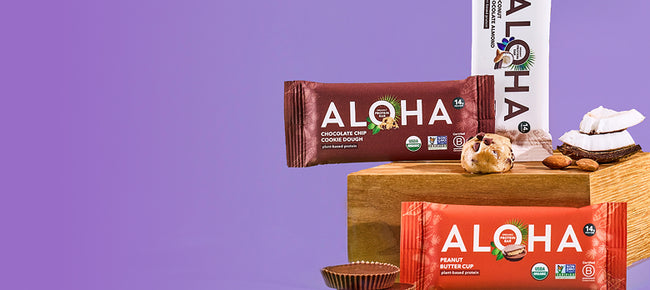 collection header image
collection header image
 collection header image
collection header image


